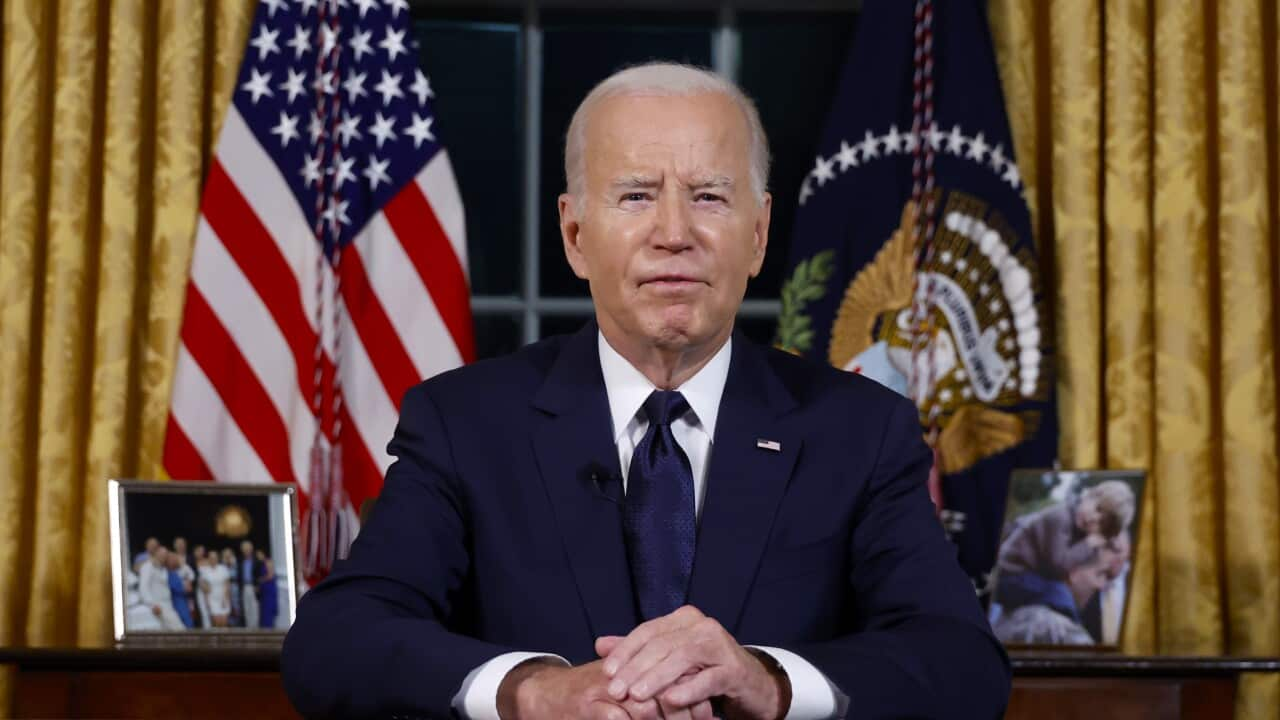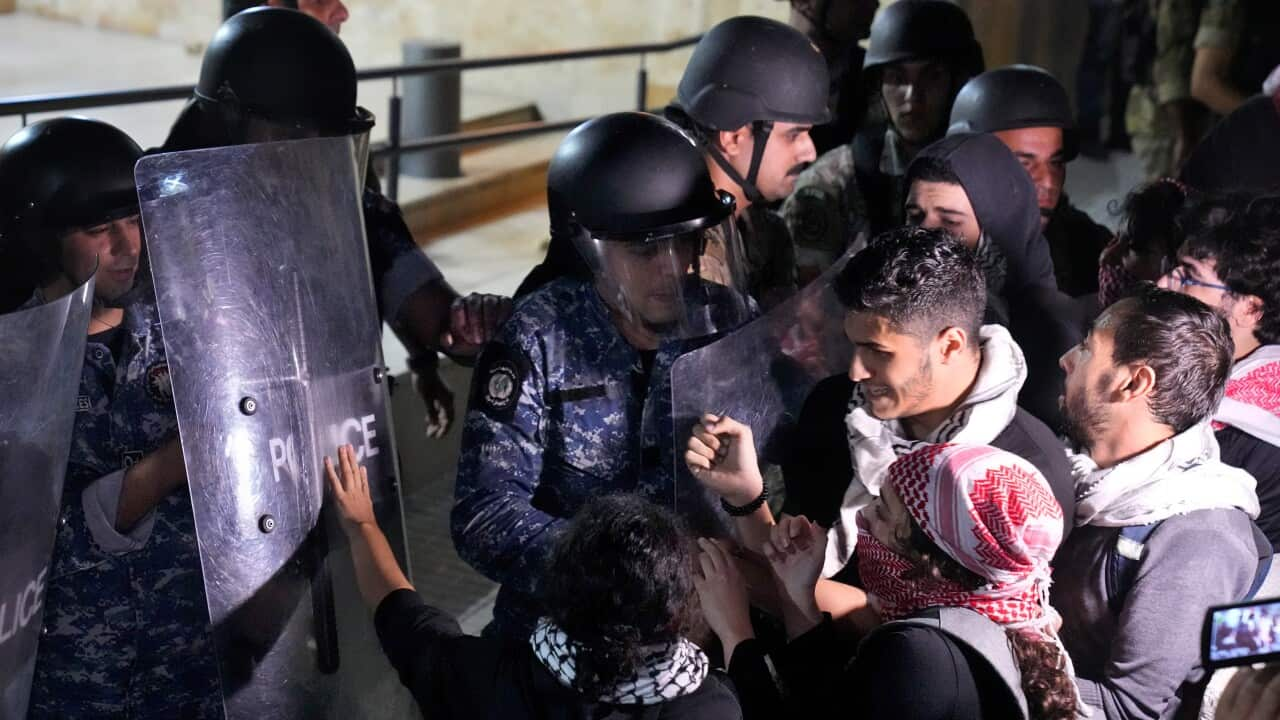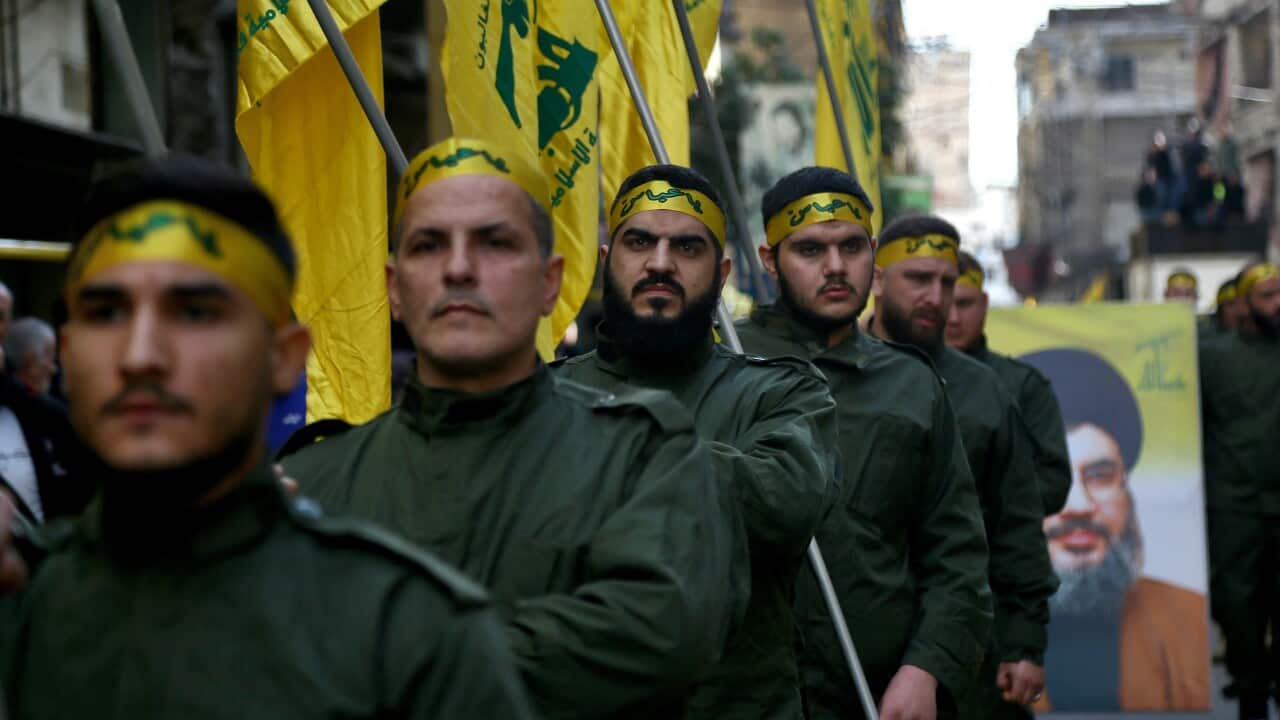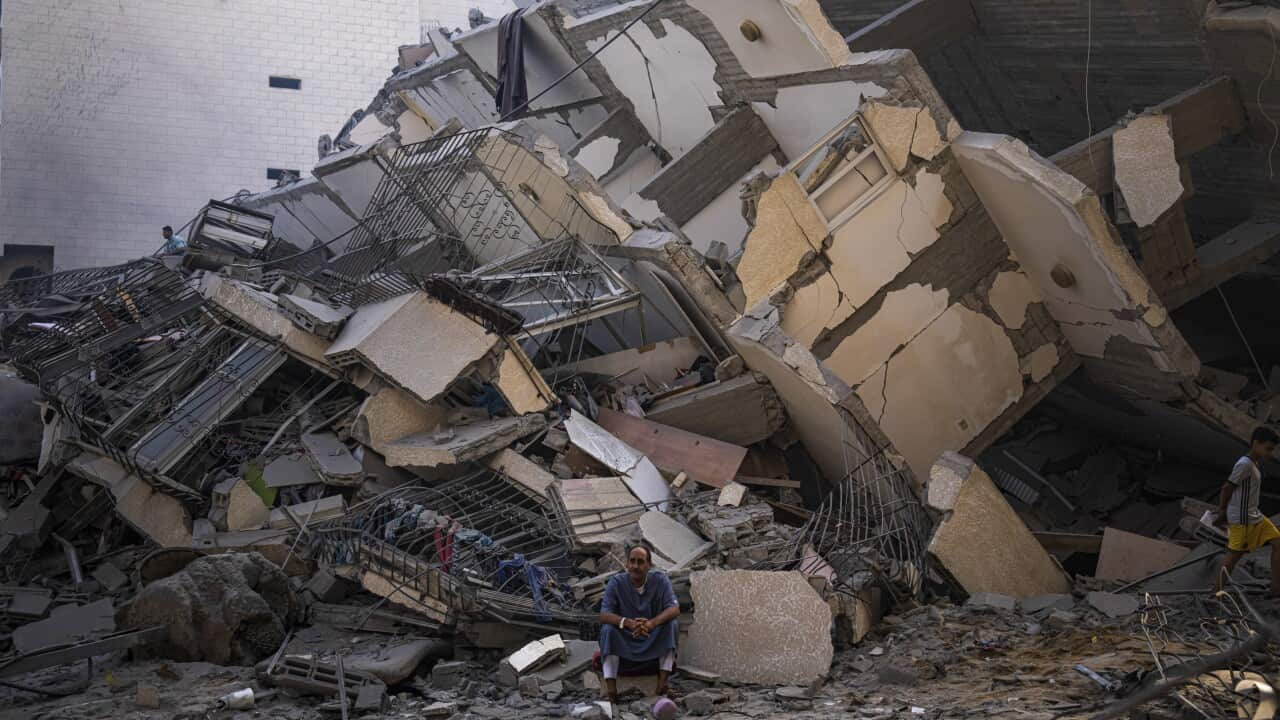Ali Al Haj Hussein is watching the Hamas-Israel war unfold from his home in south-west Sydney - and he fears it's drawing closer to his family.
The 27-year-old was born and raised in Australia and has family in Lebanon. Some of them are in the country's south, fairly close to its border with Israel.
This week, Lebanese militant group Hezbollah has been exchanging fire with Israel across the border, in what has been described as the biggest escalation of tensions in 17 years.
For some Lebanese-Australians like Hussein, it's bringing back family memories from when Hezbollah last fought Israeli soldiers in 2006, and left him questioning: "how many times do you need to flee your home, empty the villages and find a safe space?"
The clashes have prompted fears the war could spread to another front, and to "do not travel".
Hussein said he has heard some family members in Lebanon's south have packed up their belongings and moved north, to the capital Beirut.
"To cover all bases, it's concerning," he told SBS News on Wednesday.
"We feel very privileged to be safe here and viewing it online. But more than ever, you start to in your heart feel like this can be serious, it can escalate very quickly, and at some point, you probably will lose contact with people.
"And then you’re just praying until the next chance you hear from them - or from someone who has passed on a message."
Hussein said he "obviously fear[s] for their lives".
"But I know that with previous experiences of them being in wars … they would know where to be safe, and to evacuate initial target areas."
The escalating violence between Israel and Hamas , a United Nations official has said, amid regional fury in the wake of an explosion at the al-Ahli Arab Hospital hospital in Gaza .
Hamas blamed an Israeli air strike, while Israel said it was caused by a failed rocket launch by the Gaza Strip's Islamic Jihad militant group, which has denied blame.
People protested near the US embassy in Beirut following the Gaza hospital blast. TV footage showed Lebanese security forces firing tear gas and water cannons at protesters throwing projectiles.
Israeli Prime Minister Benjamin Netanyahu's government has told Hezbollah not to start a war on a second front, threatening the "destruction of Lebanon" if it did.
Hezbollah warned its adversaries on Wednesday it was "thousands of times stronger" than before, as it continued to exchange fire across the Israeli border, and announced two of its fighters had been killed.
'I'm not turning on the TV anymore'
Mother-of-two Fatima Hammoud, 34, was born in Australia and moved to Lebanon with her parents when she was seven. Her family is also from south Lebanon, but she studied and worked in Beirut.
She moved back to Australia in 2019 with her husband to start a family.
Hammoud has family and friends in south Lebanon, some of who she says are looking for places, in Beirut or elsewhere, to move. She says she's "devastated" about what is happening in Gaza.
"It's really hard sitting over here. I have my own house, I'm safe. I have food, water ... everything.," she said.
"I'm choking. I'm not turning on the TV anymore, because I don't want to see anything."
Hammoud said she is concerned about her family and friends over the border.
"I'm concerned about them and their safety. No one likes war. But the thing is, the people that live in south Lebanon, they know who is protecting them. Personally, I have faith in who is protecting us ... whether it's the Lebanese army or any other resistance forces."
On Sunday, the Australian government had updated its travel advice for Lebanon to "reconsider the need to travel".
"We've had people panicking from last week when this all started," Maria Tadros, a travel agent for Sydney's Lebanese community, told SBS World News on Monday.
"I received phone calls from passengers last night in Lebanon, saying they'd been asked to leave. I was surprised because we had no warnings until this morning."
The government's Smartraveller platform provided the update to "do not travel" on Thursday due to the "volatile security situation" and the risk of it deteriorating further.
It recommends travellers who wish to leave Lebanon should do so via the first available commercial option.
What is Hezbollah?
Hezbollah is a Lebanese Islamist political party and militant group formed in 1982 after Israeli forces invaded southern Lebanon that year.
It leads a multi-party alliance that holds just under half the seats in Lebanon's parliament.
Hezbollah is listed as a terrorist organisation by countries including Australia, the US, Germany and the UK. The European Union lists only its military wing as a terrorist organisation.
However, Hezbollah itself makes no distinction between its political and military wings.
Hezbollah and Hamas, a Palestinian military and political group, are both backed by Iran.
Hezbollah has its roots in the Shia branch of Islam, which is predominant in Iran, while Hamas is mainly a Sunni Muslim group.
Dr Eyal Mayroz, a senior lecturer of peace and conflict studies at the University of Sydney, said Hezbollah wields great power in Lebanon.
"It’s one of the most powerful forces today in Lebanon, both militarily - possibly stronger than the Lebanese army - but also politically. Hezbollah is at the centre of power and is the dominant party in the Lebanese parliament, and in running the country," he said.
Hezbollah mainly has a strong presence in Shia-majority areas, including parts of Beirut, as well as southern Lebanon and the eastern Bekaa Valley region.

Hezbollah leader Sayyed Hassan Nasrallah. Source: AAP
The president must be a Maronite Catholic, the prime minister a Sunni Muslim and the speaker of parliament Shia Muslim, as established by Lebanon's National Pact in 1943.
Mayroz said the country has been "in the clutches of an interdenominational struggle" for more than a century.
"Each one of the main powers, usually along religious lines, has a basis in places where people from the same religious denomination live. Hezbollah has been very prominent in that respect in those three areas," he said.
According to Mayroz, its standing has been "fluctuating".
"Hezbollah was initially created as a resistance movement to the Israeli invasion, and is credited by the Lebanese people with driving Israel out," he said.
"It has been strong whenever the protection of Lebanon is involved. But it has also been criticised by some in relation to what is going on with the economic situation."
Lebanon’s economy has been in crisis since 2019, which according to the World Bank, was among the " episodes globally since the mid-nineteenth century" and .
A decades-long conflict
Hezbollah and Israeli forces have been mired in an ongoing conflict for decades.
The emergence of Hezbollah came during Lebanon's 15-year Civil War (1975-1990), and was part of Iran’s effort to export its 1979 Islamic Revolution around the region and fight Israeli forces.
In its 1985 manifesto, Hezbollah laid out among other aims the necessary destruction of Israel.
Speaking alongside his United States counterpart on 13 October, Israeli defence minister Yoav Gallant described Iran, Hezbollah and Hamas as "one axis, an axis of evil".
"Everything is directed generally from Iran. The permission is given by Iran. The money is supplied by Iran and the ideas are shaped in Iran. Therefore, it doesn't matter if they give or didn't give a permission, but the idea is an Iranian idea."
'I get certain flashbacks': Memories of a 2006 war
While other groups disarmed after Lebanon's civil war, Hezbollah kept its weapons to fight Israeli forces that were occupying the predominantly Shia south of the country. Years of guerrilla warfare led Israel to withdraw in 2000.
Hezbollah last fought Israeli soldiers in a five-week war with Israel in 2006, which erupted after it crossed into Israel, kidnapping two soldiers and killing others. Hezbollah launched rockets into northern Israel and engaged Israel Defence Forces soldiers.
"When you look at that cycle, it’s like, okay, we do know it’s happened before," Hussein said. "But how many times do you need to flee your home, empty the villages and find a safe space?"
The 2006 war killed 1,200 people in Lebanon, mostly civilians, and 158 Israelis, predominantly soldiers.
Hussein was 10-years-old at the time. He said a lot of his family had to flee their homes and his grandfather’s house was struck. According to Hussein, a house in the same village was also hit in this week’s clashes.
"I remember it was very frantic. I remember certain images on TV, and I get certain flashbacks," he said.
Hussein remembers some of his extended family members waiting in Beirut for a boat to Cyprus. He recalls others saying they had dropped everything: "grab everyone and just run".
Hammoud also remembers the 2006 war. She was 17 at the time, and had just started year 12 in Beirut.
"I remember that I had exams that week. I was preparing myself to go to school, and suddenly my mum comes up to me and says I couldn't go," she said.
"Suddenly, everything just changed. One day, we were living peacefully. And then, suddenly we had to stay and home and were not allowed to leave..."
Hammoud recalls she had cousins coming from the south.
"It took them six days to get to Beirut because of all the bombing," she said.
"I remember everything... you can sense the fear that was around. Personally, I wasn't scared. But I would sense the fear and how my mum was scared."
Hamas' marked a violent escalation of the Israeli-Palestinian struggle, which has been one of the .
With additional reporting by Reuters.
Readers seeking support with mental health can contact Beyond Blue on 1300 22 4636. More information is available at . supports people from culturally and linguistically diverse backgrounds.














